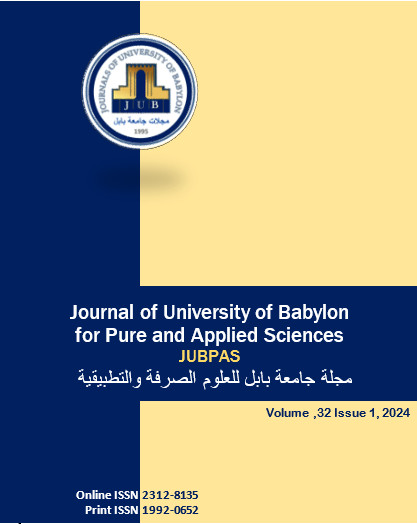Estimation of Vaspin Hormone in Obese Women With Vitamin D3 Deficiency
Main Article Content
Abstract
Background: Obesity currently stands as one of the prevailing and widespread endocrine disorders globally, it has evolved into a worldwide epidemic over the last five decades. Adipose tissue, identified as an endocrine organ within the body, plays a role in certain obesity-related conditions including insulin resistance, diabetes mellitus, and atherosclerosis. Adipose cytokines are among the factors derived from adipose tissue and act as hormones. Vaspin, among these adipocytokines, is generated by both visceral and subcutaneous adipose tissues, it serves to regulate the metabolism of adipose tissue and stimulates processes such as the maturation and differentiation of adipocytes.
Materials& Methods: أعلى النموذج
The individuals who participated in this study were 90 women between (18-50) years old. The research encompassed 45 healthy women with regular menstrual cycles, serving as an age-matched control group. In contrast, the second group comprised 45 obese women who had previously been diagnosed with a vitamin D deficiency.
Results: The results showed that there was a significant increase at (P≤ 0.01) in the level of Vaspin, Parathyroid hormone (PTH) and Osteopontin (OPN) in the group2 compared to the control group, while there was a significant decrease at (P≤ 0.01) in Vitamin D3 (VD3), Vitamim K2 (VK2), Phosphorus(P) and Calcium(Ca+2) in group2 compared to the control group.
Conclusion: This study found that vaspin, osteopontin, and PTH show an inverse association with vitamin D3. While vitamin K2, calcium, and phosphorus show a positive association with vitamin D3.
Article Details

This work is licensed under a Creative Commons Attribution 4.0 International License.
